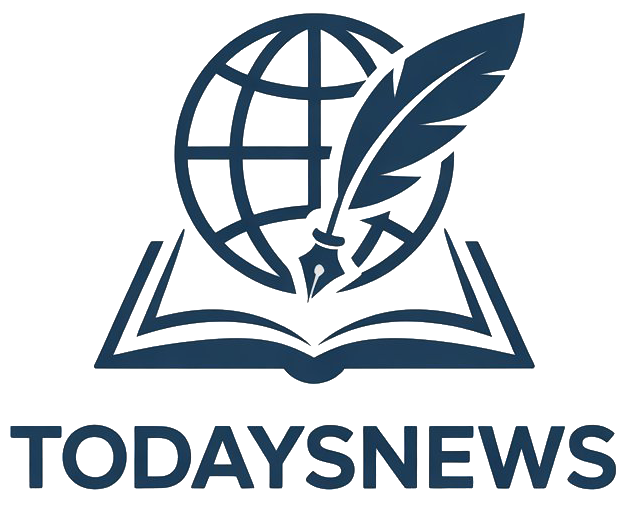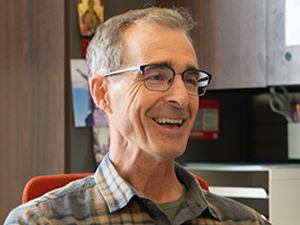Catholics often wrestle with how to align their investments with their faith. Dr. Geoffrey Friesen, associate professor of Finance at the University of Nebraska–Lincoln, specializes in behavioral finance, mutual fund performance, business ethics, and the application of Catholic Social Teaching to economics.
Dennis Kellogg, director of communications for the Catholic Diocese of Lincoln, interviewed Dr. Friesen about the intersection of faith and money, investing from a Catholic perspective, and being true to the Catholic faith in a secular work environment.
What follows is an edited transcript of that conversation.
Dennis Kellogg, Southern Nebraska Register: How does your Catholic faith fit into your work (with finance and economics)?
Dr. Geoffrey Friesen, Associate Professor of Finance, University of Nebraska-Lincoln: I haven’t always been Catholic, and my faith hasn’t always influenced my work the way it does now. I would say over time, it has come to do so more and more, in part because of a conversation I had with a student maybe 10 years ago… The student said… how should I be thinking about this (investment strategy) as a concerned citizen and person? It caused me to pause… and showed me that my economic worldview, my financial worldview, what I was teaching, was built upon a certain set of assumptions and those were not the same assumptions that animated my view as a Catholic. One of the ways the Catholic faith has challenged me is to think both more deeply about what is it that the Catholic Church teaches and what it is that the Catholic Church asserts to be true about the human condition… Does that look differently if we put that into an economic model?
Southern Nebraska Register: You have economics and finance, and you have Catholic social teaching. What motivated you to look into (the intersection of those topics)?
Dr. Friesen: The first motivation was reading the encyclical Rerum Novarum, and I only stumbled into that because I was volunteered to help coach a homeschool high school speech and debate team, and the speech and debate resolution for that year happened to be something like the following: In the realm of economics, freedom ought to be valued above equity… I had become Catholic a few years before and started looking for the issue of fairness or justice or equity in the world of economics.
Always to that point, I had been influenced by the view that popes speak on matters of faith and morals but when it comes to economics, they should leave that to the economist… I read Rerum Novarum and immediately was struck by how deeply relevant the questions were… A second influence was a seminar that I attended put on by the Lumen Christi Institute in 2019… It was on Catholic social teaching and economic thought. These were some of the top economists in the country who were there. That provided almost like the permission and legitimacy to think seriously about these issues in finance and economics…
And third is something I always encourage in all my students and that is to strive for an integrated life… I’m very transparent about my own lens, the Catholic lens, through which I see the world. It’s not so important that they adopt my lens, but that the students are able to and are given permission to own their own wisdom tradition, or whatever that framework is, and integrate that with their ethical worldview. For me, the Catholic worldview provides the most coherent integration that I’ve yet encountered.
Southern Nebraska Register: Would you say Capitalism is the economic framework that’s most in line with Catholicism?
Dr. Friesen: If you go back to Rerum Novarum, the idea of private property, which is a central tenet of capitalism, the capital is owned by private individuals or institutions… At the same time, the idea that firms owe a singular duty to their shareholders, really doesn’t necessarily find deep roots in Catholic social teaching… What do we need for markets to function? We need private ownership. We need transparency. We need clarity on rules of law and the enforcement… Adam Smith emphasized that we (also) need virtuous actors, and so that virtue finds its home squarely in Catholic social teaching. The term capitalism… means different things to different people. It’s like any economic system. It depends upon where its roots are planted, what the anthropological soil looks like. And if there is no virtue in the soil, then the plants are going to grow up to look different and be, in my opinion, less healthy that when the virtue is there. So yes and no, or like any economist would say, it depends.
Southern Nebraska Register: The United States Conference of Catholic Bishops has developed some guidelines for socially responsible investing. They include not investing in companies involved with abortion, contraception, pornography, weapons production, human rights violations and activities that harm the environment. There would be some obvious companies that you would want to avoid given that list. But how easy, knowing that no company is perfect, is it to base your investment strategy on avoiding companies that avoid all of these things? Is that realistic for an investor?
Dr. Friesen: It is certainly realistic to do. There’s a cost to doing it and there’s always a subjective degree of judgment. Certainly, I would agree with, for me personally, the desire to avoid any entanglement with the abortion industry or the fetal tissue industry or the contraception industry. Then you get into issues like just war theory, and tobacco or alcohol, and there are subjective value judgments to be made. In some cases, it’s black and white within Church teaching. In other cases, you can have two very sincere Catholics who disagree on a particular issue… Pope Francis talks about this, and Benedict, that every economic act is a moral act, and so investing is one important channel through which we can influence companies… I really respect what the Church has taught, and I think that those guidelines are absolutely ethically and financially sound and valid. I think our consumer choices also make a difference, and that’s an area that I would also like to see more articulation on, in some sense, from the bishops in the future.
Southern Nebraska Register: Let’s talk about the concept of stewardship, that everything we have, everything, is a gift from God. We’re not the ultimate owners of the resources. So, using that mindset, can we take it to the extreme and say, is it wrong to accumulate any kind of wealth?
Dr. Friesen: The idea that we’re stewards of resources that were not of our own creation, that preceded us and that will stay after us. It doesn’t mean that we cannot engage with those. My view is one of the ways we engage with that is through the ownership of property, but understanding the purpose, or the telos or the end goal of that ownership is critical. If the end goal is just my own self preservation… and my own consumption, that’s going to lead to a different set of choices and investments than if my view is, these are resources that have been entrusted to me, and I’m to make the most of them for the greatest good.
I mean, then that’s a prudential judgment…. There’s nothing to my mind contrary to the gospel or Catholic teaching about being industrious or entrepreneurial or creating genuine wealth, I mean, the Church teaches goods that are truly good and services that truly serve are in some sense, inherent and desirable. And profit and money, in some sense, are like the oxygen in the business environment. So profit is not a dirty word.
Southern Nebraska Register: You said at the beginning of our conversation you can invest from a Catholic perspective, but you have to understand going in that there’s going to be a cost to doing that. Does that mean it’s harder as a Catholic to be successful in investing, or do we just have to be smarter?
Dr. Friesen: There’s a long-standing debate in finance and investing about whether one can do well by doing good. First of all, there will be others out there who will agree with me and others who disagree, that there is always a cost to discipleship. Sometimes it is the case that by screening companies, you actually get the well-run companies who are run by virtuous leaders, and it turns out that their performance is at or even superior to the overall market. So it’s not always the case that there’s a cost, but I think that as Catholics, we should be prepared for the possibility that there’s a cost. That is, we should not enter into a values-based investment with the presupposition that it’s always going to work out as well or better as long as I do the right thing… So I think not only being smarter, but being wiser and understanding that to the extent that there’s a financial cost associated with discipleship, there may also be, at the same time, spiritual or relational or personal benefits that don’t come in the form of a higher annual average return, but nevertheless, are real and may actually result from our having made those choices. So smarter and wiser.
Southern Nebraska Register: Do you think the Church says enough, does enough, preaches enough about how we should be investing our money, or should the Church say anything at all about that?
Dr. Friesen: I don’t know that Catholics would necessarily benefit from more investment portfolio advice from the Church… One of the things that drew me to the Catholic Church, was the depth and clarity of the philosophical and theological teaching.
So, I think that there is a valid case to be made that the Church does have a duty to continue framing issues of economic or financial matters at the level of first principles… If we want to make the case that the Church needs to stay completely out of matters economic and financial, which I don’t make that case, to me, what that’s really saying is I accept more or less whole cloth this view of man, or the human person, that economics and finance presents. To the extent that we don’t, and I’m not saying that’s wrong, but I’m saying that’s incomplete, in my opinion, to the extent that that’s incomplete, then we need assistance or guidance from the outside to fill in those gaps and that’s where I think, to me, the philosophical and theological and moral teachings bear weight.
Southern Nebraska Register: Pope Francis is quoted as saying, “money should serve, not govern.” How do you come up with that balance of I want to be a good Catholic, but I also have to protect my family (financially)?
Dr. Friesen: I have to start with the caveat that I’m not a financial (advisor), so this is not financial advice… Pope Francis is talking about money should serve. It should be an instrument towards some greater or broader goal or end that is inherently good. And I think that if we keep that order in mind, there’s nothing wrong with having a well-ordered, well-defined set of goals and ends that are in and of themselves, inherently good, inherently valuable, and guiding our lives as Catholics. Our resources, including our investments, should serve that and should be an instrument towards achieving that. And so long as I think we keep that ordering in perspective, to me, that’s a healthy ordering.
Southern Nebraska Register: Most Catholics are people of faith who work in a secular environment. You yourself as an associate professor of Finance at the University of Nebraska-Lincoln, you do that as well. What advice do you have on how to handle it when the secular worldview, the culture, starts to come into conflict with your Catholic faith in the workplace?
Dr. Friesen: I think always one for me, knowing what I believe and why I believe it. For me, I’ve come to find it very helpful to… anticipate what are the legitimate challenges or objections and how would I respond in a charitable but authoritative way. That’s helped me immensely, I think, in dealing with issues of conflict, which certainly exist and abound here at the university, finding a way to engage them charitably, but also knowing what I believe and not apologizing for those… Every institution has its own culture, its own ethos, its own embedded value system. And so, to the extent that it’s possible, aligning yourself with an organization where the values are either explicitly or maybe even tacitly supportive of what your viewpoint is can be very helpful
Southern Nebraska Register: You’re also the faculty advisor for the Thomistic Institute here at the University of Nebraska-Lincoln. Tell me more about that organization.
Dr. Friesen: It’s a chapter of the National Thomistic Institute, which is run out of the Dominican House of Studies in Washington, D.C., and the goal of the Institute is to bring high caliber, nationally known speakers to campus to engage in issues that are related to Catholic teaching or to Mystic philosophy. This fall, we have three speakers coming in… My own view is that the university is here to develop the whole person, body, mind, heart, soul, and the mind part is something that is historically a challenge in secular universities to engage in serious intellectual inquiry that’s not hostile to the Catholic faith or to the Christian faith. So, the Thomistic Institute is really set up to bring these speakers to campus and present a really compelling, coherent, rigorous, academically grounded platform for thinking about and discussing these issues.
Watch the entire interview with Dr. Geoffrey Friesen of the University of Nebraska-Lincoln on the Catholic Diocese of Lincoln YouTube channel.


